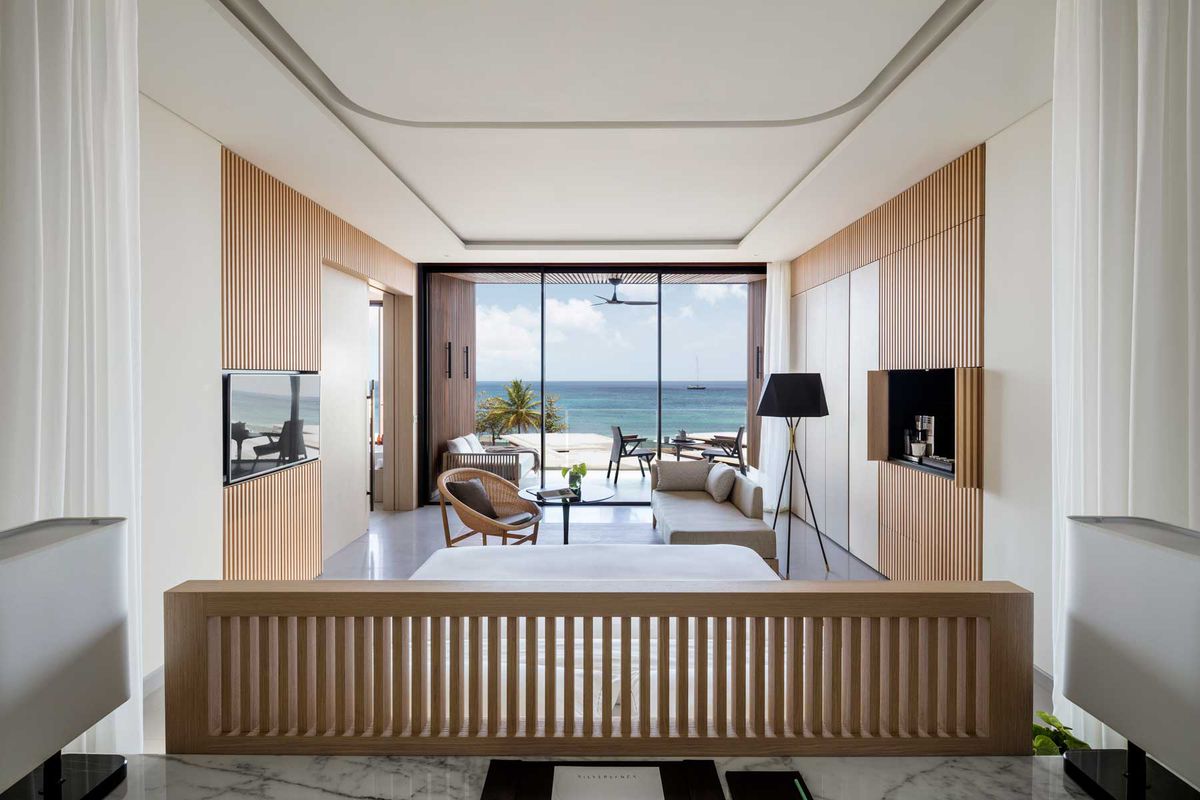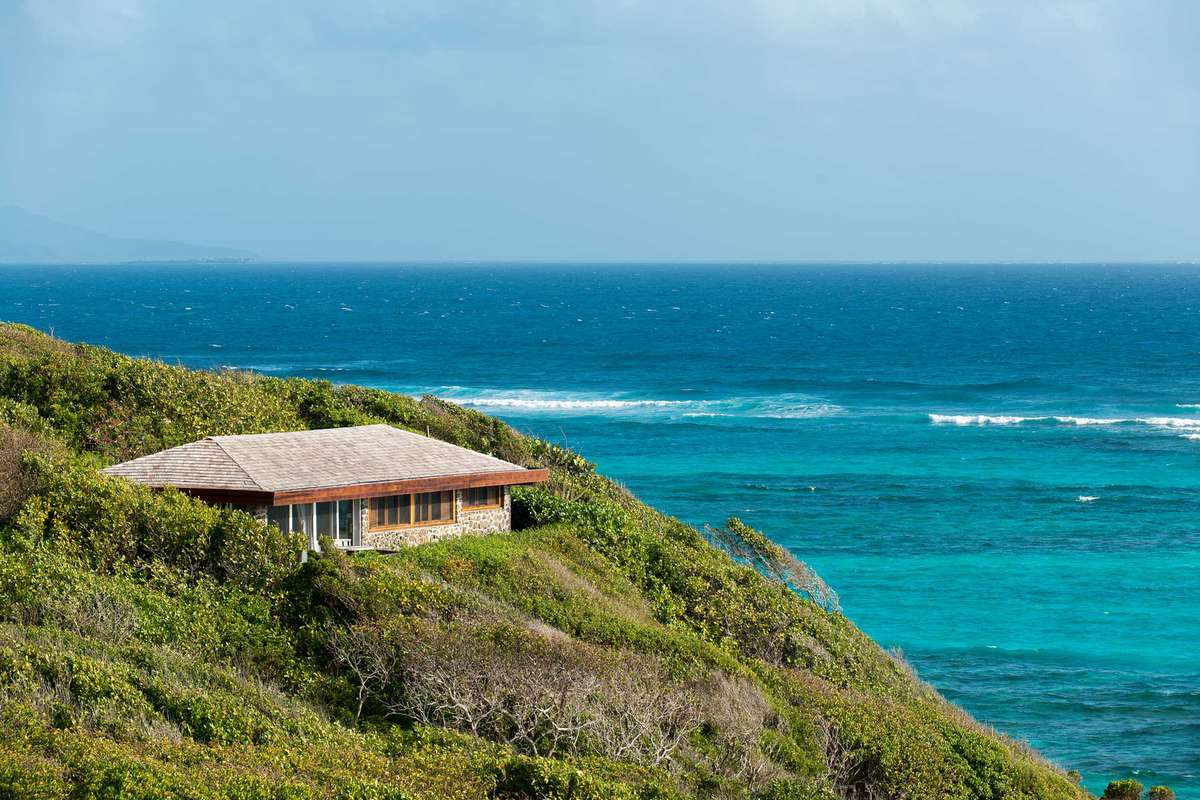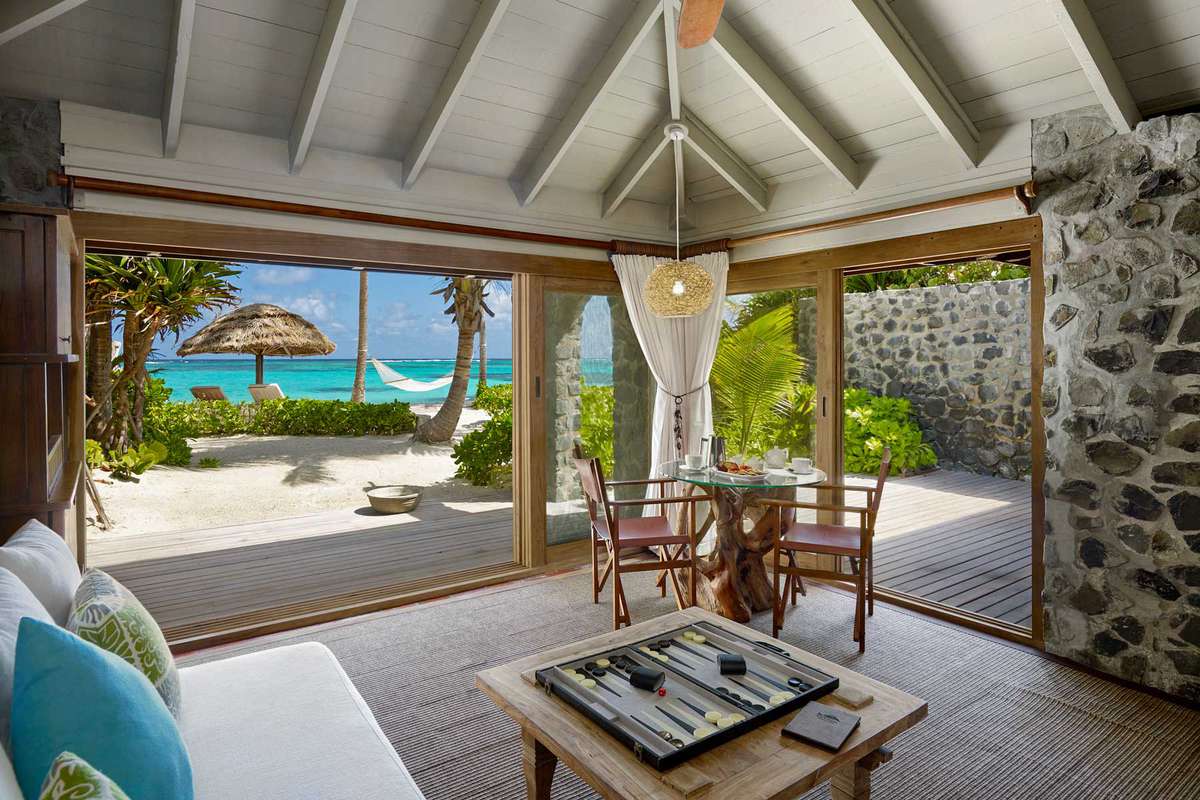
On my February visit to the Turks and Caicos, I didn't have to spend a single day in quarantine. But then, it was easy to keep to myself at Beach Enclave Grace Bay (villas from $5,500), a 10-villa resort that opened in January. My residence, like all the others, was staffed by a butler. Namraaj Gautam looked after me throughout my stay, after arranging every aspect of my visit in advance — from scheduling a pickup at the airport to filling the kitchen with provisions. Once on island, I could communicate with him entirely by phone, making for a low-touch experience that enhanced safety without sacrificing hands-on service. Gautam even organized complimentary in-villa antigen testing before my return to the United States.
My experience was quite different on a trip to Grenada last November, before December's spike in COVID-19 cases on the island. On arrival, I had to quarantine in my suite at Silversands Grenada (doubles from $990) for five days. Only after a negative PCR test, conducted in my room on day five, was I finally free to enjoy the beach and take a limited number of excursions.
Across the Caribbean, people are grappling with the challenges of the pandemic, balancing the need to keep local populations safe from COVID with the need to keep tourism-reliant economies humming. Anguilla, for example, has been requiring PCR tests on arrival since it reopened to visitors in November. Authorities have also mandated that guests remain in a visitor bubble for at least 14 days, something I experienced on a January trip.
Rather than having to ride out a strict quarantine at Belmond Cap Juluca (doubles from $825) or Tranquility Beach (doubles from $350), I was free to circulate between approved hotels, restaurants, and attractions. The catch was that the only locals there were staff — all of whom were wearing masks, of course. (Since my visit, Anguilla closed to international visitors but plans to reopen on May 25. T+L is tracking the latest on where Americans can travel now.)
Sometimes the environment itself becomes a factor. For example, Petit St. Vincent (villas from $1,350), the private-island resort in St. Vincent and the Grenadines, has just 22 cottages punctuating its 115 hilly acres, meaning there's no shortage of personal space. Still, it has added an option to book the entire eastern peninsula of the island, which has four villas, a dining pavilion, and a private beach. It's an ideal place for a "pandemic pod" vacation.
These minimal-contact trips aren't without their downsides: spontaneous and satisfying local connections are difficult to forge at a distance. After I spent a day touring Grenada, it felt odd — rude, even — not to be able to thank my guide with a hug, as I normally would have. In Anguilla, where I have become dear friends with one islander, the only interaction we were allowed was a wave from my hotel balcony. But for now, low-touch travel may be the smartest — and safest — way to go.
A version of this story first appeared in the May 2021 issue of Travel + Leisure under the headline The Rise of the Contactless Vacation.
Source: Read Full Article












